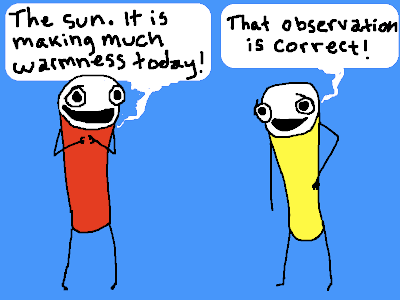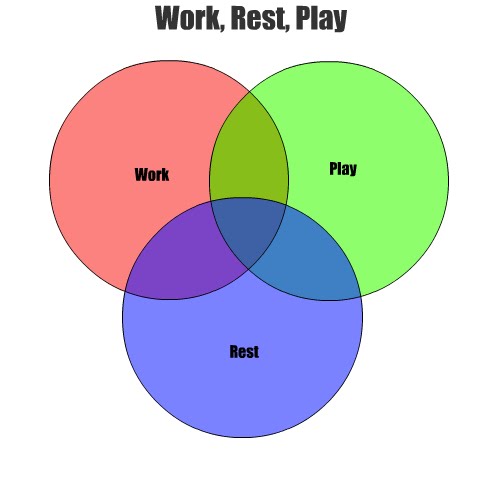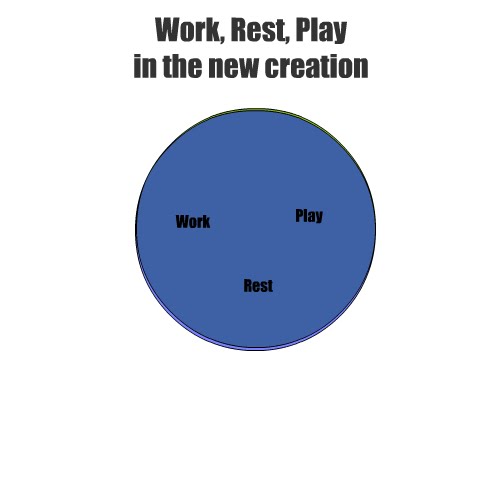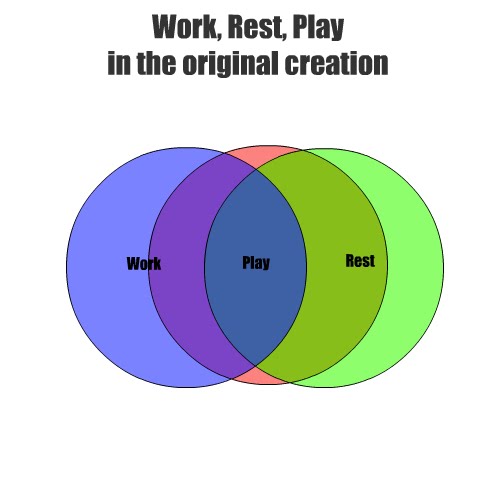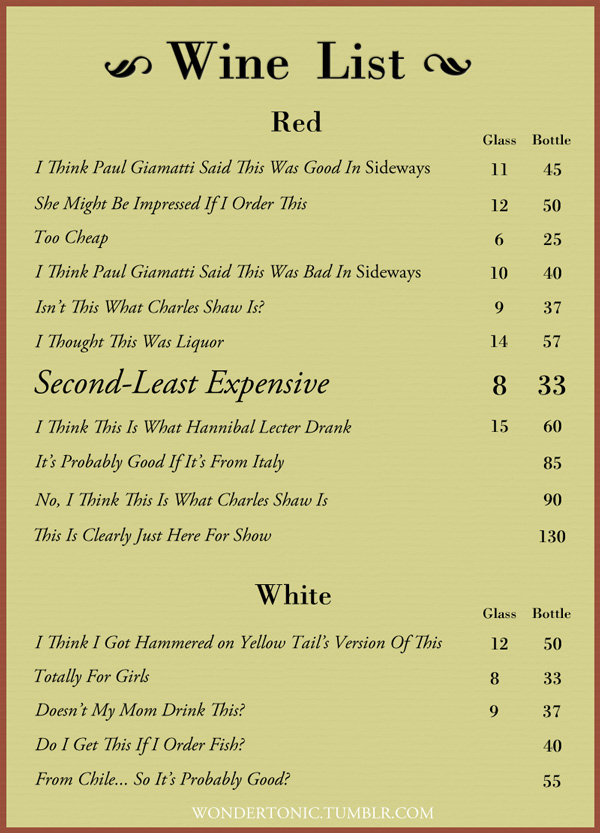I have, for some time, been trying to reconcile (in my head at least) two philosophical positions that I find fairly compelling. Positions that drive my approach to life and that come with some baggage and myriad problems if one strays from the path I am trying to chart. It’s a path trodden, with varying degrees of success, by guys like Rick Warren, Joel Osteen, and the apostle Paul. I’ll leave you to figure out who of those three I think did it successfully.
I’m pretty sold on the “missional” approach to ministry – and with that, these days, comes “contextualising.” We can talk about what that means further if you want. But lets just say I think our job as Christians is to proclaim the gospel to people in a manner that engages with them where they are at, and points to the Lordship of Christ. This Lordship expresses itself in a transformation of that person’s life towards righteousness, and away from sin. Those people then become transformers of culture and join the team as “fellow workers” in the harvest. That’s our job as Christians. Live lives pleasing to God, devoted to worshiping him Romans 12 style – and being ambassadors for Christ (2 Corinthians 4:11-21). Being heartily reformed, I believe that this of course comes under the sovereignty of God and his work in and through the Spirit.
First, some Bible.
Here are the passages I find most exciting in the Bible.
The Great Commission (Matthew 28)
18Then Jesus came to them and said, “All authority in heaven and on earth has been given to me. 19Therefore go and make disciples of all nations, baptizing them in the name of the Father and of the Son and of the Holy Spirit, 20and teaching them to obey everything I have commanded you. And surely I am with you always, to the very end of the age.”
Being “all things to all men” (1 Corinthians 9)
19Though I am free and belong to no man, I make myself a slave to everyone, to win as many as possible. 20To the Jews I became like a Jew, to win the Jews. To those under the law I became like one under the law (though I myself am not under the law), so as to win those under the law. 21To those not having the law I became like one not having the law (though I am not free from God’s law but am under Christ’s law), so as to win those not having the law. 22To the weak I became weak, to win the weak. I have become all things to all men so that by all possible means I might save some. 23I do all this for the sake of the gospel, that I may share in its blessings.
Being “Ambassadors of Christ” (2 Corinthians 5)
“11Since, then, we know what it is to fear the Lord, we try to persuade men. What we are is plain to God, and I hope it is also plain to your conscience…
14For Christ’s love compels us, because we are convinced that one died for all, and therefore all died. 15And he died for all, that those who live should no longer live for themselves but for him who died for them and was raised again.
16So from now on we regard no one from a worldly point of view. Though we once regarded Christ in this way, we do so no longer. 17Therefore, if anyone is in Christ, he is a new creation; the old has gone, the new has come! 18All this is from God, who reconciled us to himself through Christ and gave us the ministry of reconciliation: 19that God was reconciling the world to himself in Christ, not counting men’s sins against them. And he has committed to us the message of reconciliation. 20We are therefore Christ’s ambassadors, as though God were making his appeal through us. We implore you on Christ’s behalf: Be reconciled to God. 21God made him who had no sin to be sin for us, so that in him we might become the righteousness of God.”
I think there are plenty more passages I could use. Pretty much the entirety of Acts.
Let me, just briefly, define what I don’t mean by “gospel” – I don’t mean the “turn or burn” message of repentance. I mean the whole kit and caboodle. One really helpful thing from college this year has been learning that the Greek word for gospel, ευαγγελιον, had a present day meaning before the gospel writers picked it up – it was the proclamation of the arrival of a king.
That’s a helpful way of thinking about the gospel – the arrival of a king entails a realignment of one’s life towards living the way that king commands. So when I talk about presenting the gospel what I mean is more than just telling people they’re going to Hell if they don’t repent and believe. It’s about proclaiming the present and future reality of the Kingdom of God. That means talking about suffering, persecution, and the nitty-gritty of Christian life, not just promising prosperity and beds of roses in order to win converts.
On Utilitarianism
Utilitarianism is a bit of a dirty word – and rightly so. Because without any sense of qualification it basically boils down to “the ends justifies the means” – which means that so long as the outcomes of your action are a positive (in its original form a net increase in happiness) whatever action you take is morally acceptable.
The model of Utilitarianism popularised by John Stuart Mill (though coined by a guy named Jeremy Bentham) was framed as “the good is what brings the greatest happiness to the greatest number of people.”
Gospel Utilitarianism
Unadulterated pragmatics flowing from a utilitarian philosophy has no place in the proclamation of the gospel. It leads to compromise. Pretty quickly. But the underlying principle – of providing the greatest good to the greatest number – I think is more tenable.
If we understand that a person’s chief end is to glorify God, and enjoy him forever. That that aim is their greatest good. Then our goal should be to see that “greatest good” being enjoyed by the greatest number. Shouldn’t it? Provided the emphasis in this model is on “Gospel” not on “Utilitarian” I think it’s a pretty useful rubric for making decisions, and a good ethical metric to consider.
[UPDATE]
I think it’s also important to point out that I think pragmatism grounded in research and observation of how things work, and in the Bible’s account of how things work, and its instructions for Christian living and Christian ministry (with the latter as the priority) is fine. I’m not anti-natural revelation. And I think that’s what pragmatism is. It’s using natural revelation (observations of the world) to inform our approach to presenting people with the truth of special revelation (Christ, through the Bible).
This isn’t “ends justifies the means” stuff – but it’s about using whatever means are possible, biblically speaking, to achieve the ends. And it probably leads me to consider some secondary issues as altogether more trivial than others (for example, I can’t understand people who rule out ministry with the Presbyterian Church on the basis of a hang-up on baptism. I don’t think it was an issue for Paul (I reckon he would have treated it a bit like circumcision).
Hardcore “contextualisation” (Acts 16)
1He came to Derbe and then to Lystra, where a disciple named Timothy lived, whose mother was a Jewess and a believer, but whose father was a Greek. 2The brothers at Lystra and Iconium spoke well of him. 3Paul wanted to take him along on the journey, so he circumcised him because of the Jews who lived in that area, for they all knew that his father was a Greek. 4As they traveled from town to town, they delivered the decisions reached by the apostles and elders in Jerusalem for the people to obey. 5So the churches were strengthened in the faith and grew daily in numbers.
Which seems nasty in the light of this (Galatians 6)
4May I never boast except in the cross of our Lord Jesus Christ, through which the world has been crucified to me, and I to the world. 15Neither circumcision nor uncircumcision means anything; what counts is a new creation. 16Peace and mercy to all who follow this rule, even to the Israel of God.
